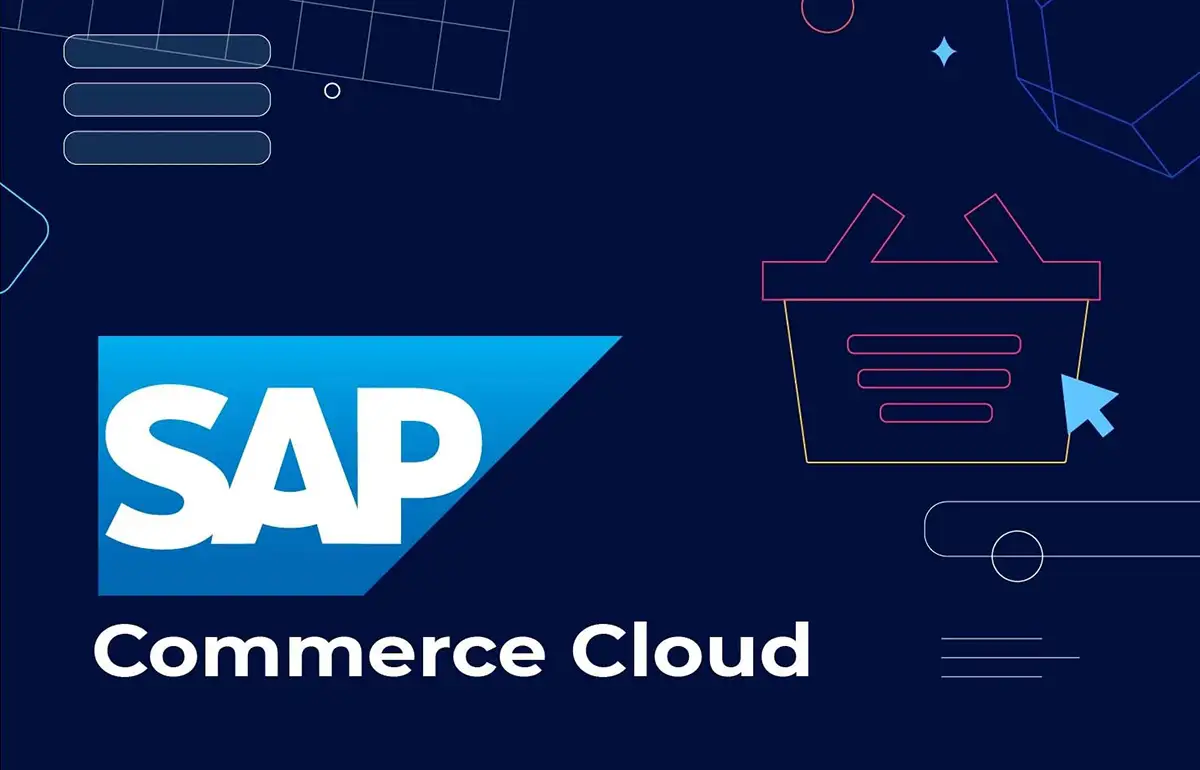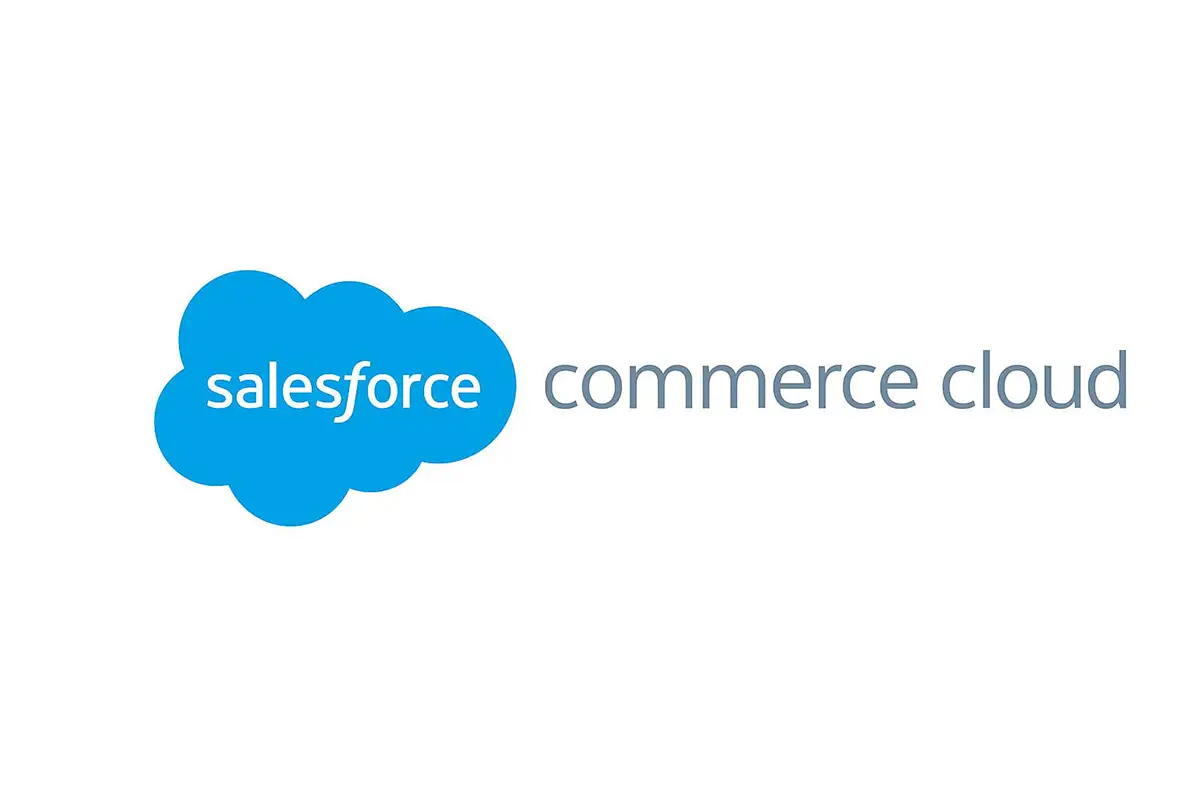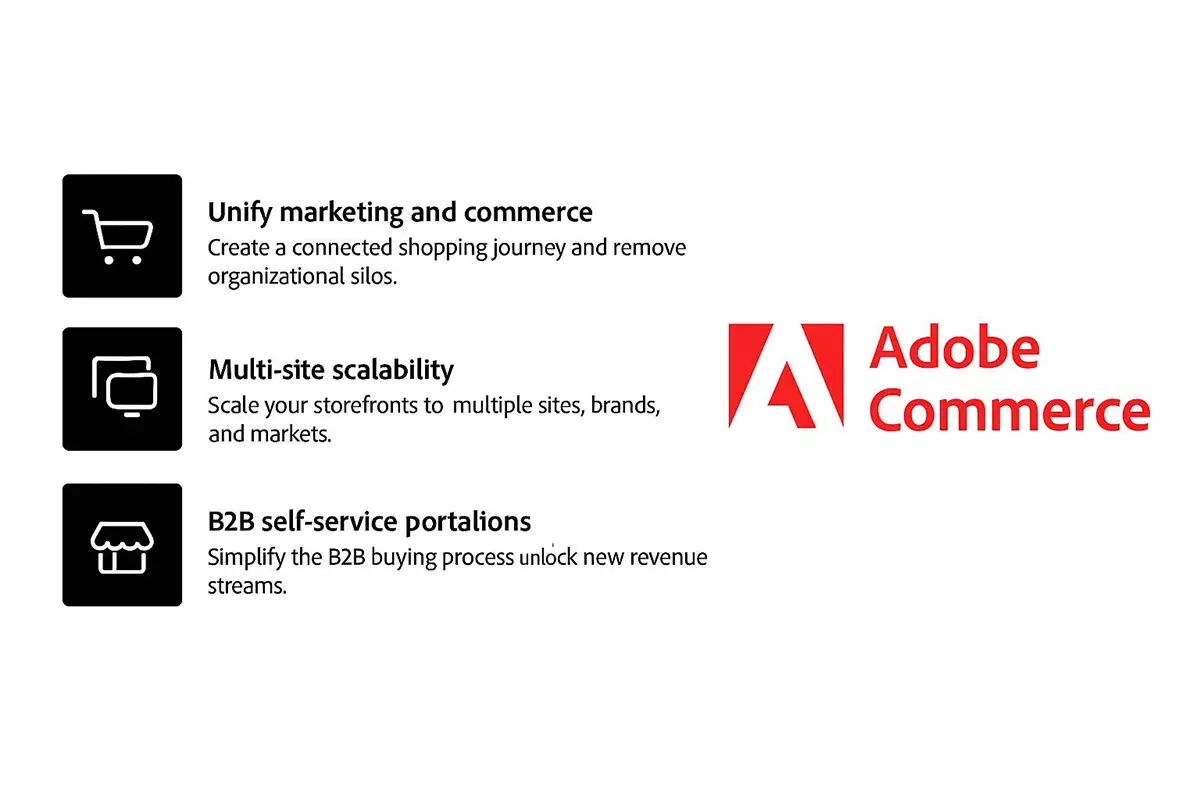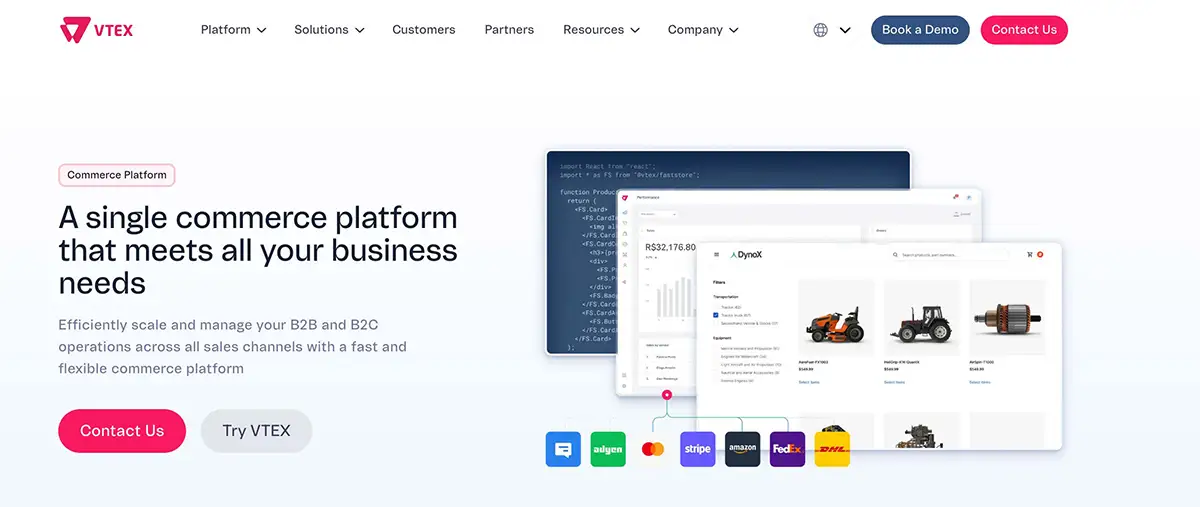
6 Best Enterprise eCommerce Platforms for 2025
Introduction
Enterprise eCommerce is evolving rapidly in 2025, driven by the need for composability, AI integration, and omnichannel personalization. With global digital commerce set to surpass $6.3 trillion this year, corporate retailers must future-proof their infrastructure to stay ahead.
This article curates the best ecommerce platforms designed for complex, high-volume operations. Built for CMOs, digital transformation leads, and enterprise eCommerce decision-makers, it provides a strategic overview of the top ecommerce platforms that deliver scalability, performance, and innovation.
From composable architecture to native B2B tools, you'll walk away with the clarity needed to assess and act on your next enterprise ecommerce solution.
The List: Top Enterprise eCommerce Platforms
1.SAP Commerce Cloud – Deep Integration for Global Giants
What it is: SAP Commerce Cloud is a powerful, enterprise-ready solution offering deep integration with SAP ERP, PIM, and CRM systems. It excels at handling complex product catalogs, localization, and multi-brand management.
Features & Pros:
- Tight ERP/PIM integration
- Multi-site, multi-language, and multi-currency support
- High security and governance controls
Why it matters: For large-scale retailers with global footprints, SAP Commerce Cloud ensures seamless back-office to front-end synchronization and robust regional execution.

2. Salesforce Commerce Cloud – CRM + Commerce in One
What it is: Salesforce Commerce Cloud is an unified platform combining commerce with Salesforce’s robust CRM, marketing, and analytics capabilities, enabling personalized, data-driven journeys.
Features & Pros:
- Einstein AI for product recommendations
- Seamless CRM, service, and marketing cloud integration
- Global scalability with multi-site management
Why it matters: Brands looking to unify commerce with lifecycle marketing and service will benefit from Salesforce’s customer-first approach to enterprise ecommerce.

3. Adobe Commerce (Magento) – Flexible, Headless, Powerful
What it is: Adobe Commerce offers a flexible, modular architecture with native support for headless deployments and integration with Adobe’s content and analytics tools.
Features & Pros:
- Customizable checkout flows
- Extensive extension marketplace
- Integrated with Adobe Experience Cloud
Why it matters: Retailers focused on content-driven commerce and highly tailored experiences will find Adobe Commerce a strong match.

4. VTEX – Unified B2B, B2C, and Marketplace
What it is: VTEX brings together B2C, B2B, and marketplace functionality into one unified platform, allowing retailers to operate multiple business models from a single backend.
Features & Pros:
- Built-in OMS
- Headless and low-code tooling
- Marketplace-ready architecture
Why it matters: For brands moving toward ecosystem and partner-led commerce, VTEX offers agility and breadth.

5. BigCommerce Enterprise – Open SaaS with B2B Strength
What it is: BigCommerce Enterprise provides an open SaaS model with strong native B2B features, fast deployment, and robust API capabilities.
Features & Pros:
- Optimized for SEO
- Multi-storefront support
- Native B2B functionality like price lists and bulk ordering
Why it matters: Ideal for enterprise brands wanting flexibility without managing infrastructure.

6. Shopify Plus – Enterprise Simplicity Meets Speed
What it is: Shopify Plus is a fast, intuitive platform built for agile rollouts, high-volume DTC sales, and omnichannel reach.
Features & Pros:
- Rapid deployment
- Customizable checkout
- Expansive app and partner ecosystem
Why it matters: Perfect for corporate retailers launching sub-brands, regional storefronts, or seasonal campaigns quickly.

Let’s kickstart the conversation and design stuff people will love.

Snapshot Table: Enterprise Platform Comparison

Strategic Commentary
Today’s enterprise retailers must think beyond features and consider long-term strategic alignment when selecting a platform. Key patterns in this year’s top ecommerce platforms include:
- Composable infrastructure over rigid monoliths
- Built-in personalization and AI across the stack
- Support for hybrid business models (B2B, B2C, marketplace)
These trends reflect larger macro shifts: growing digital complexity, shorter innovation cycles, and rising demand for tailored customer experiences. The biggest mistake? Choosing a platform that solves yesterday’s problems instead of enabling tomorrow’s growth.
Conclusion & Next Steps
As enterprise brands look to modernize their commerce stack, platform choice becomes foundational to speed, scale, and innovation. This list has provided a structured look at the best ecommerce platforms for global retail in 2025.
Take time this quarter to evaluate where your current infrastructure is holding you back—and which enterprise ecommerce solutions can unlock your next phase of growth.
Need help turning these ideas into results? Start the conversation with G&Co.






%20(1).png)






